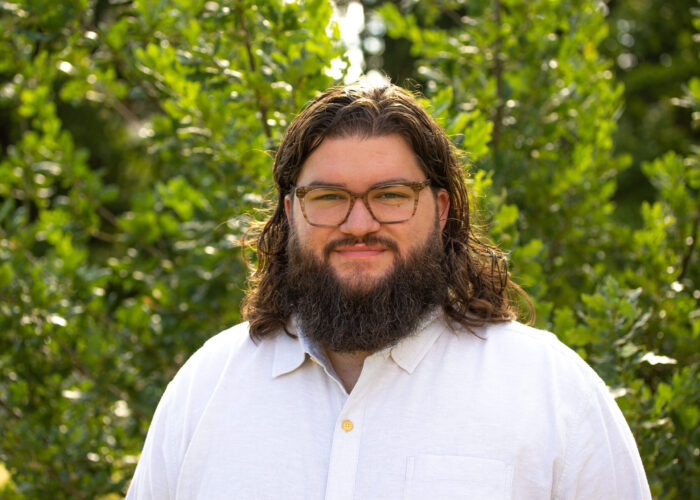When we acknowledge that God gives us life and satisfies our needs, we are no longer driven to acquire more. We can be generous and hospitable in our communities.
We aren’t awake very long before we are bombarded by advertisements. We can’t even watch a YouTube video without having to sit through a quick ad. What are these ads telling us? They often play upon our fears and insecurities. The usual message is that we would be better, smarter, more attractive, safer, happier with some thing. This message implies that who we are and what we have is not good enough. We need more.
A culture of “more” in an economy of scarcity
Our whole culture is geared toward getting more. Get good grades in school, not because they are a potential measure of how well we engage with the amazing world around us, but because they will get us into a good college. That college will lead to a good job. That job will lead to a promotion, or, an even better job. Those good jobs give us money, which allows us to get the things being advertised. This unquenchable thirst leads to covetousness, obsession, anxiety, lust, greed, theft, murder and death.
This mindset, played out in so many different ways within our society, is termed by Walter Brueggemann, “an economy of scarcity.” It implies that there is not enough in our world, so we need to get as much as we can. This economy of scarcity shows up in the first chapters of The Bible. Cain refuses to offer his first fruits as a sacrifice to God. He keeps them for himself. Instead of trusting God, he trusts himself. Then Abel, after offering his first and best to the Lord, is killed by his brother in a fit of jealousy. The idea of a zero sum-game creeps into the world. Cain thinks, “If I offer my first and best to God, there will not be enough left for me. And since my brother received a blessing, there is not a blessing left for me.”
Biblical alternative: An economy of abundance
The biblical narrative offers us an alternative to the economy of scarcity. It is an economy of abundance. The Bible starts off with a liturgy of abundance. God keeps saying, “It is good; be fruitful and multiply.”
In contrast to God’s abundance at the beginning of time, Pharaoh in Egypt championed an economy of scarcity. He stores up the people’s grain and makes them buy it back. But God delivers the Israelites into the desert, a place where there is nothing to save up, nothing to gain control of. God provides manna every day. It can’t be stored up. It spoiled when the people tried to save it. Manna is one of the strongest symbols of God’s abundance. Brueggemann says, “It is a free gift [the Israelites can’t control, predict, plan for, or own]. The meaning of this strange narrative is that gifts of life are indeed given by a generous God. It’s a wonder, a miracle, an embarrassment, irrational, but God’s abundance transcends the market economy.”
Grace, an example of the economy of abundance
Grace is also a gift from God, given freely and abundantly. We do nothing to receive this grace; it is given as a free gift. We live knowing that our sins have been forgiven and, despite our future failure, we can still have life in Christ. This does not give us a pass to sin in whatever ways our desires dictate, but the gift of grace compels us to lives of increasing faithfulness.
In the same way, this economy of abundance is not an excuse to over-consume. Quite the contrary, it shows that our consumption does not satisfy us. God’s abundance is what gives us life and satisfies our needs. We no longer think about things in terms of scarcity where there is a constant struggle to get your hands on more, but instead recognize that God provides all that we need.
The paradox of more with less
In practical terms, this means that we can, and should, consume less, live more simply. When we accept God’s plan of abundant living, we end up consuming less and permitting others to have more. It’s a paradox.
One example is Jesus feeding the 5,000. Another example is the problem of hunger. There are people in our world, and in our country, who do not have enough to eat. Yet, globally, we produce enough for everyone to have plenty. Some people end up with much more than they need, so much more that they throw food away and others go for days without eating.
Mandate of faithfulness
Obviously, just because you consume less doesn’t mean that people who are in need will get more. We live in a world of systems and structures that, even with our best intentions, keep others from having enough. Thankfully, there are many people who try to change those systems and structures. I believe we should all take an interest in how we can work for this kind of social change.
I would also suggest that, as Doris Janzen Longacre says, “As Christians dealing with human hurts, we have to remind ourselves again and again that we are not called to be successful, but to be faithful. Our first direction comes from the way Jesus told us to live, not from what we think will work.” Many times our actions feel like they are insignificant, and I suspect that sometimes they are. However, our calling is not to save the world. That responsibility is with Christ.
Signs of faithfulness
Although simple living cannot be legislated, can we expect to see signs of faithfulness? I would like to suggest three ways that simple living bears fruit in our lives.
Generosity—Perhaps the most obvious product of simplicity is generosity, sharing what you have. If we know that God has created a world of abundance, we don’t have to cling to the things we have. We should be eager to offer our possessions and resources as an expression of how God has and will provide and bless us with all that we need. This extends beyond our money and possessions. It also means our time and talents. Jesus favorably contrasted the woman who gave two pennies, everything she had, with the rich man who gave only what he knew he could afford.
Hospitality—Hospitality could be considered a more specific form of generosity. Our homes are often a safe and sacred space. Inviting someone into that space is a magnificent gift. It implies a personal interaction, a mutual exchange that begins a relationship. Welcoming the stranger is an important theme within the biblical narrative.
Community—Through generosity and hospitality the third fruit of simple living is created: community. Community is built on relationships that can only be fostered through vulnerability and reciprocation of generosity and hospitality. When we model a life of God’s abundance, we are inherently inviting others to join in.
How to create space for simple living
Although simple living is about a different worldview, a transformation and renewing of the mind, that cannot be reduced to a checklist of do’s and don’ts, we can be intentional about creating space to encourage a lifestyle that revolves around God’s abundance. Here are three practices that my Mennonite Voluntary Service housemates and I practiced as an expression of our commitment to simple living and God’s economy of abundance.
- Walk to work—There was less stress in the freedom from rushing to meet a public transportation schedule. There are physical and mental health benefits and an opportunity to appreciate the natural world. The walk also enabled us to connect with neighbors.
- A food plan—In order to stick to our budgeted food allowance as a community, we had to discuss the pros and cons of buying at the grocery store, the food co-op, and the farmers’ market. We had to verbalize our expectations of each other and compromise the ideal to the reality of our situation. This required the full participation of everyone and enabled generosity.
- Welcoming guests—We intentionally chose to say “yes” to sharing our house space. This created opportunities to meet new people from near and far, and strengthened our own community.





